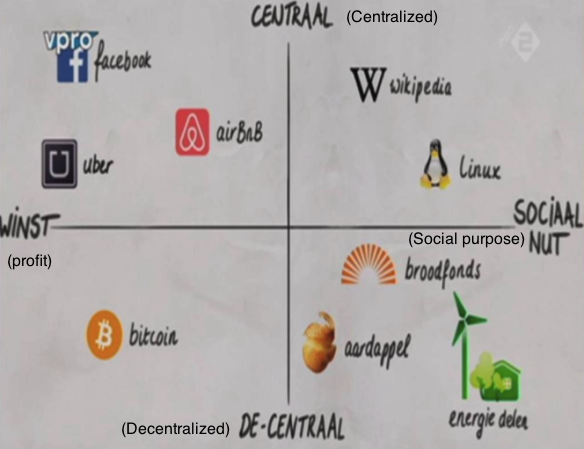Sharing economy: sharing or selling?
Dec 2, 2014
The past year we have seen the rise of what has been dubbed the Sharing Economy, an economic model based on access over ownership. Rachel Botsman, one of the thought leaders on this topic and author of the book “What’s Mine is Yours: How Collaborative Consumption is Changing the Way We Live” provides the following definition:
Sharing Economy: An economic model based on sharing under-utilized assets from spaces to skills for monetary of non-monetary benefits.
The “sharing economy” has been characterized as a revolution: Renting a room on Airbnb or catching an Uber, we do not need institutions, we can organize ourselves in a decentralized matter. A lot of these platforms, including Airbnb and Uber, have become part of this concept of the sharing economy. But is that justified? Are they sharing or selling?
Tegenlicht, a Dutch documentary show, aired an episode about the sharing economy on Sunday in which they interviewed Michel Bauwens, the Belgium founder of the Peer-to-Peer Foundation. He introduced a simple model showing that platforms now viewed among sharing economy companies are actually just companies trying to sell a service
- Top left: Uber and Airbnb work like centralized platforms whose main goal it is to make profit, despite their altruistic about-pages.
- Bottom left: decentralized platforms that aim for profit, like bitcoin stock exchanges
- Top right: centralized platforms who serve a non-profit social goal like sharing knowledge (Wikipedia) or software directories (Linux)
- Bottom left: the real sharing companies (often cooperations) who share or trade goods without money-based payments being involved.
Although simplified in this model, this way of thinking helps shaping a better understanding of these new digital competitors. Their actually more like traditional businesses than they want you to understand. So in stead of perceiving companies like Uber as examples of sharing economy companies, we should look at them as a new generation of two-sided markets. Two-sided markets, also called two-sided networks, are economic platforms having two distinct user groups that provide each other with network benefits.
(figure from Eisenmann, Parker, Van Alstyne, 2009)
Business should look at the design principles of these platforms such as the offering of products/services without dealing with huge operational costs and risks and how companies like Airbnb have introduced new systems of accountability. It’s not so much about sharing, it’s about better ways of selling.

 English | EN
English | EN 


